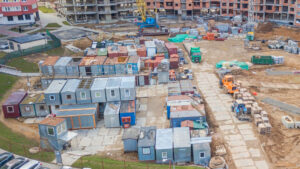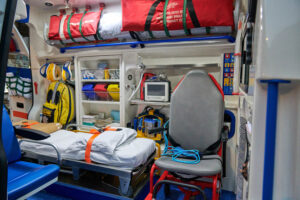
What’s Included in Oil and Gas Facilities Management
Oil and gas facilities management is a complex and critical discipline that ensures energy operations in Canada’s most remote locations

Indigenous communities hold a large body of indigenous knowledge passed down through the generations. These customs, traditions, history, spiritual beliefs and local language forms the foundation of their identity and have inhabited remote lands for centuries, cultivating a deep understanding of the environment, natural resources, and sustainable practices. Recognizing the value of this local knowledge and actively seeking to incorporate it in business operations and celebrating the wisdom it offers can create a harmonious and sustainable future.
Indigenous knowledge is grounded in generations of lived experience, observation, and a profound connection to the land. It encompasses a holistic understanding of the environment, including the flora, fauna, seasons, and natural cycles. By honoring Indigenous perspectives, we gain insights that can enhance our approach to remote operations, fostering a deep respect for the land and its communities.
Indigenous communities have long practiced sustainable resource management, recognizing the importance of preserving natural resources for future generations. Incorporating traditional wisdom into remote operations allows us to adopt sustainable practices that promote conservation and minimize environmental impact. By integrating Indigenous knowledge, we can strike a balance between economic development and environmental stewardship.
Incorporating Indigenous knowledge is not just about sustainable practices. It is also a means of preserving culture and fostering respect. By working collaboratively with Indigenous communities, we can ensure that their cultural values, traditions, and heritage are acknowledged and respected. This partnership enables us to learn from their wisdom, fostering mutual understanding and strengthening the fabric of our remote operations.
Incorporating Indigenous knowledge requires engaging in collaborative decision-making processes. By involving Indigenous communities in discussions and planning, we create opportunities for their voices to be heard, and their insights to shape our operations. This inclusive approach fosters trust, promotes a sense of ownership, and enables us to make informed decisions that consider both the needs of our projects and the values of the Indigenous communities.
Incorporating Indigenous knowledge requires building genuine partnerships based on trust, respect, and reciprocity. We strive to establish collaborative relationships with Indigenous communities, recognizing their expertise as rightful stewards of the land. Through these partnerships, we can develop innovative solutions, leverage local knowledge, and create meaningful social and economic benefits for both our operations and the Indigenous communities.:
Incorporating Indigenous knowledge in remote business operations is essential for building sustainable and inclusive practices. By recognizing the invaluable wisdom of Indigenous communities, we can nurture a deeper connection with the land, adopt sustainable resource management, preserve cultural heritage, and foster meaningful partnerships that can lead to sustainable development in remote environments.
Domco Group of Canada Limited is one of the most trusted and well respected remote sites service providers in Canada. Fully Canadian and independently owned, Domco has been in operation since 1945. We offer integrated remote site solutions, including a nutritious and well planned menu cycle, long-term relationship building, and deep Canadian roots in remote locations with Aboriginal communities.
Let us take you through some key advantages that set us apart.

Oil and gas facilities management is a complex and critical discipline that ensures energy operations in Canada’s most remote locations

In the rugged, often isolated world of remote construction camps, construction facility management is the invisible force that sustains daily

Remote maintenance is the backbone of operational continuity in Canadian work camps, especially those located in isolated regions supporting industries

Remote camp health and safety is a vital concern in the management of Canadian remote workforce camps, especially in resource-driven

Keeping crews energized and satisfied starts with smart camp food menu ideas—especially in remote environments where morale and nutrition go

Gas remote camp mobilization is a critical operational phase in Canada’s oil and gas industry, particularly in remote and northern

When it comes to remote site security in Canadian work camps, ensuring safety and protection is paramount. These facilities, often

In Canada’s vast and resource-rich landscapes, remote site maintenance plays a pivotal role in sustaining the operations of work camps

In Canada’s vast and often isolated regions, remote camp management plays a vital role in advancing sustainability across diverse work

Remote site administration is a vital function in Canada’s most geographically isolated and operationally demanding environments. From the Arctic’s frozen

Developing a sustainable infrastructure for a remote camp facility located in the rugged, often isolated regions of Canada—such as the

In Canada’s vast and rugged landscapes, remote facility catering has evolved from a logistical challenge into a platform for sustainable

Budgeting for facility repair and maintenance in remote Canadian work sites is no small task. When miles away from urban

The process of gas remote camp mobilization in Canada is a critical operation that supports the development and maintenance of

Remote facility chefs are the unsung heroes of Canada’s sprawling wilderness operations—from fly-in camps tucked into diamond-rich tundras to energy
